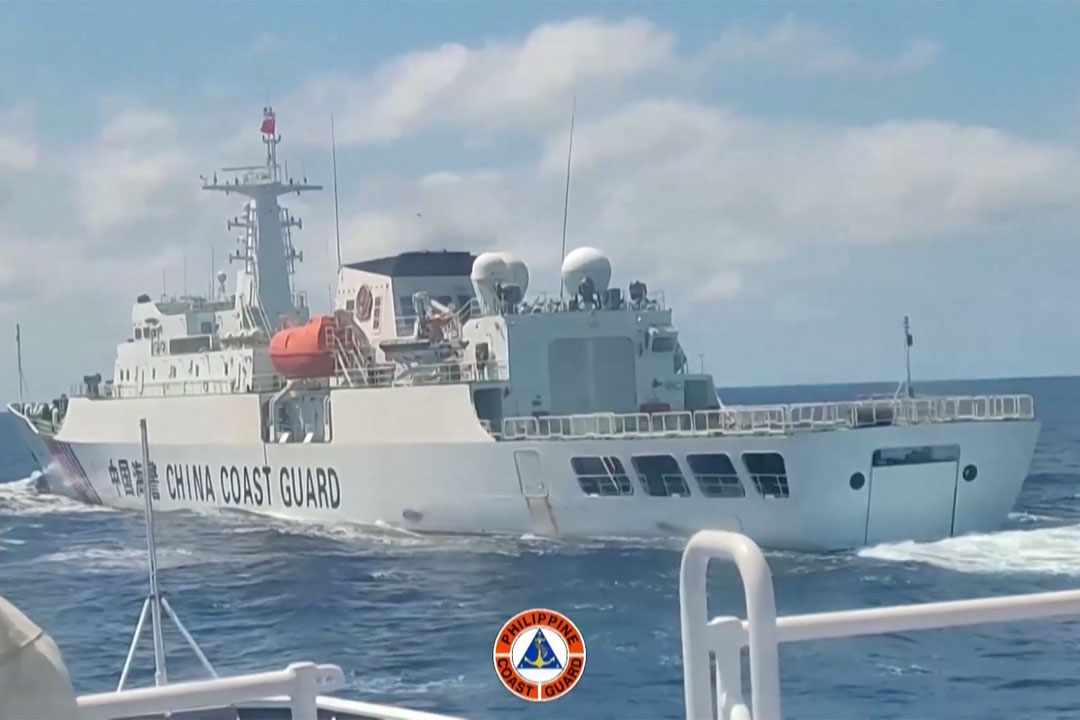Lawmaker suggests invoking defense treaty with US; China raises ‘caution’

By Beatriz Marie D. Cruz and John Victor D. Ordonez, Reporters
ONE of the leading legal minds in Congress urged the government on Thursday to seek United States assistance against potential attacks on Philippine vessels in the South China Sea, assuring President Ferdinand R. Marcos, Jr. that Manila’s 72-year-old defense treaty with Washington can be invoked.
In a statement, Cagayan De Oro Rep. Rufus B. Rodriguez underscored the need for consultation with the US under the 1951 Mutual Defense Treaty, citing the threat to personnel, fishermen, and the Philippines’ territorial integrity.
“It’s obvious that there has been no ‘armed attack’ yet — [or] an assault that is within the purview of the treaty. But certainly, there is threat to our personnel and fishermen and to our country’s territorial integrity or security,” he said in a statement.
The Philippines has been unable to enforce a 2016 ruling by a United Nations-backed arbitration court voiding China’s claim over most of the South China Sea due to the latter’s harassment of Philippine vessels within its exclusive economic zone (EEZ).
Mr. Rodriguez said the Philippines’ diplomatic protests against China — a total of 132 filings by the Department of Foreign Affairs (DFA) from the time Mr. Marcos assumed office in mid-2022 until last Wednesday — have “fallen on deaf ears.”
He said it is about time the country considered consulting its strongest defense ally.
Citing Article III of the defense treaty with the US, Mr. Rodriguez said that parties involved may consult each other on whether an external armed attack in the Asia Pacific serves as a threat to the territorial integrity, political independence or security of either states involved.
Mr. Rodriguez also referred to Article V, which states that an armed attack on either parties is “deemed to include an armed attack on the metropolitan territory of either of the Parties, or on the island territories under its jurisdiction in the Pacific.”
CHINA TO PHILIPPINES: ACT WITH CAUTION
In a statement on Thursday, the Embassy of China in Manila said its Foreign Ministry has urged the Philippines to “act with caution” in dealing with issues related to the South China Sea, adding that both states agreed to hold a dialogue soon.
The embassy said Chinese Foreign Minister Wang Yi and Philippine Foreign Affairs Secretary Enrique A. Manalo had a phone call on Wednesday to discuss possible future bilateral talks on diplomatic ties between the two countries.
Mr. Yi urged the Philippines to avoid any more provocations in the disputed waterway, citing risks of further escalations in the area.
“If the Philippine side miscalculates the situation and is bent on having its own way, or even colludes with ill-intentioned external forces and continues to cause trouble, China will defend its rights in accordance with the law and respond resolutely,” he said.
“The most urgent task is to properly handle and control the current maritime situation… and any disputes should be discussed and resolved.”
China’s top envoy and Mr. Manalo also agreed on engaging in more diplomatic mechanisms tackling maritime issues.
In a separate statement, the DFA said Mr. Manalo’s phone call with his Chinese counterpart was a “frank and candid exchange” about the concerns surrounding the South China Sea.
Over the weekend, Mr. Marcos told reporters that his government is eyeing a “paradigm shift” in its strategy to deal with China amid incidents of aggression in the South China Sea.
It was issued hours after Philippine Defense Secretary Gilberto C. Teodoro, Jr. rebuked China for accusing the Philippines of provoking and escalating tensions in the South China Sea, saying only Beijing believed its claim.
Tensions between the Philippines and China have worsened after the Chinese Coast Guard fired water cannons to block Manila’s attempt to deliver food and other supplies to troops stationed at BRP Sierra Madre.
In 2016, a United Nations-backed arbitration court based in The Hague said China’s claim to nearly the entire South China Sea has no legal basis, but Beijing has largely ignored the ruling.
In a Senate hearing earlier this year, Mr. Manalo said the US could invoke its Mutual Defense Treaty with the Philippines, but this would still be subject to congressional review.
Last February, Mr. Marcos gave the US access to four additional sites on top of five under the Philippines’ 2014 Enhanced Defense Cooperation Agreement (EDCA).
In March, the President said EDCA sites will not be used to launch offensives. Mr. Manalo also told Philippine senators that the EDCA cannot be invoked to defend Taiwan from China.
National Security Council spokesman Jonathan E. Malaya previously said the Philippines subscribes to the One China Policy, which recognizes Taiwan as part of China.



